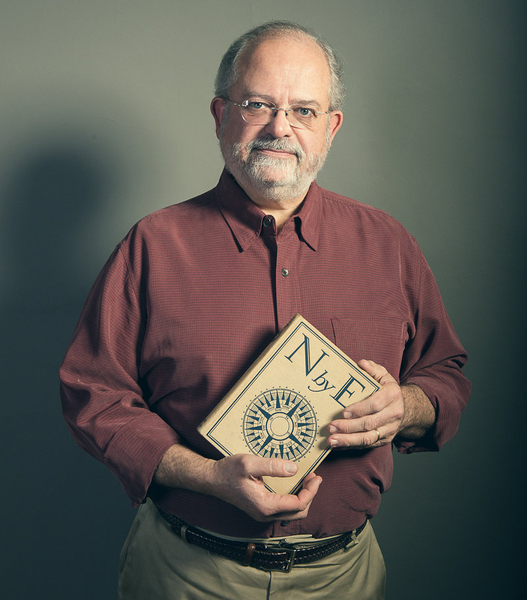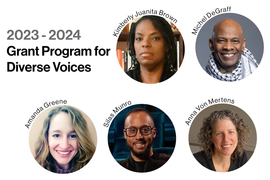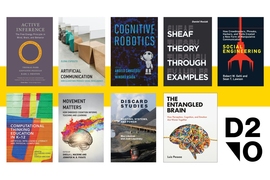In his first years as an acquisitions editor at the MIT Press in the late 1980s, Bob Prior helped handle a burgeoning computer science list.
Thirty-six years later, Prior has edited hundreds of trade and scholarly books in areas as diverse as neuroscience, natural history, electronic privacy, evolution, and design — including one single novel that he was able to sneak onto his list of otherwise entirely nonfiction titles. In more recent years as executive editor for biomedical science, neuroscience, and trade science, his work has focused on general interest science books with an emphasis on the life sciences, neuroscience, and natural history.
Prior argues, though, that his work — while fundamentally remaining the same — has always felt keenly different from year to year. “You utilize the same kind of skills, but in service of very different authors and very different projects,” he says.
And after a career at the press spanning three-plus decades, Prior is set to retire at the end of June.
He will leave behind an incredible legacy — especially as “a master networker, an astute acquiring editor, and a champion of rigorous and brilliant scholarship,” says Bill Smith, director of sales and marketing at the MIT Press. “His curious mind is always on the lookout for brilliant scientists and authors who have something to say to the wider world.”
“I’ve always valued his excellent instincts and competitive drive as an acquisitions editor, and his passion for his work and for the research in the fields that he works on,” says Amy Brand, director and publisher of the press. “In recent years, he’s been very generous in providing astute guidance to me and other press colleagues on specific projects and our overall acquisitions program.”
“Best of all, Bob is a boundary pusher, constantly questioning the preconceptions of what a smart, general reader book can be,” says Smith.
For Prior, some of his favorite projects over his career at the press have been some of the most personal.
One of the books he is proudest of having worked on is “The Autobiography of a Transgender Scientist,” written by lauded neuroscientist Ben Barres and finished just prior to his death from pancreatic cancer in 2017. Prior was tasked with editing Barres’s book posthumously.
“It is an incredibly personal story; he talks about his experiences being an undergrad at MIT, his transition, and the challenges of his life,” says Prior. With the diligent care that is a hallmark of Prior’s work as an editor, he helped bring Barres’s final work to the public eye. “It’s a book I am very proud of because of Ben’s legacy and the person he was, and because every person I know who has read it has been transformed by it in some way,” Prior says. “The book has strongly impacted my view of the world.”
Other books acquired by Prior over the course of his career include “The Laws of Simplicity,” by John Maeda; “The Distracted Mind: Ancient Brains in a High-Tech World,” by Adam Gazzaley and Larry D. Rosen; “Consciousness: Confessions of a Romantic Reductionist,” by Christof Koch; “Blueprint: How DNA Makes Us Who We Are,” by Robert Plomin; and “The Alchemy of Us: How Humans and Matter Transformed One Another,” by Ainissa Ramirez.
According to Gita Manaktala, executive editor at large at the MIT Press, Prior’s dedication and incredible success throughout his career is no coincidence. “For nearly 40 years, Bob Prior has shown us how to cultivate books by scientists and technologists,” Manaktala says. Each week Prior writes to a list of people he has never met but whose work he admires. Sometimes he hears back; but just as often he does not, Manaktala says — or at least not right away. Even so, Prior has never given up, knowing that books and relationships take time and effort to build.
“His sustained interest in people, ideas, and their impact on the world is what makes a great editor,” Manaktala adds. “Bob has helped to grow hundreds of essential books from small seeds. The world of ideas is a richer, greener, and more fertile place for his efforts.”
“I’ll personally miss him and his insights a great deal,” says Brand.
“While my life after MIT Press will be full with family, friends, and meaningful work in my community, I will definitely miss the world of publishing and chasing down great authors,” Prior says of his 36 years at the press. “What I will miss the most are my incredible colleagues; what an amazing place to make a career.”









